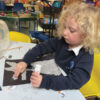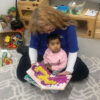In 2013, Miriam Gonzalez, the wife of Nick Clegg former Deputy PM, set up a charity called inspiring girls.com. The aim of the organisation was simple, to make young women aware of the range of opportunities that are potentially available to them and to support that by gathering potential mentors to help them find and follow these pathways. Gonzalez’s organisation operates globally and in the UK has strong links with inspiring women.co.uk which has already established itself as an organisation that uses role models, motivational speakers and events to showcase equality in the workplace, on the sports field and beyond.
The subjects of defining the role of women, equality, gender pay gaps and harassment of women have rarely been out of the headlines in 2018. For young women of the next generation it potentially feels like a step forward towards greater equality. Making sure it is meaningful and sustained is the next challenge.
Change in societies’ outlook does have implications on education and many would argue that development of positive attitudes and values are one of the key elements of the education system. Extensive research suggests that girls from an early age have distinct attitudes to equality. A project in 2017 in the US looked at children as young as five and six and how they absorbed gender stereotypes. Andrei Cimpian, one of the co-authors at New York University, found that girls as young as six believed that ‘brilliance’ was a male trait and that unlike boys, girls did not believe that achieving good grades was related to innate abilities. Some of the outcomes from this research link with other work that found that parents and teachers attribute good grades in maths to hard work for girls, but to natural ability for boys.
In the Primary and Prep sector we have a huge responsibility
to try and open up opportunities to redress some of the stereotyping and possibly to work with parents to help them not to reinforce these attitudes at home. Most of us would be shocked and disappointed to think that our young girls don’t see themselves equally capable and yet it is evident that sometimes it is our attitudes that are compounding the problem.
The challenge then is to create a culture whether at home or at school, where girls feel that all subjects can potentially play to their strengths and that they can become natural risk takers and not fall into the ‘slipstream’ of boys who will often take this role with confidence. We all recognise that the work place of the future will be about people’s response to change, innovation and problem solving. If girls are to become more risk takers, we need to firstly create a culture of security from which they can take risks with confidence. Schools talk about creating resilience but this actively requires schools to allow children to manage disappointment, respond to unfamiliar situations and initiate problem solving and not rely on adults.
Role models play a particularly strong role in inspiring all of us and schools are recognising the importance of opening up opportunities for pupils to see the breadth of career options as well as examples of determination, resilience, performance and overcoming adversity. Inspiration is a rather overused word but there is no doubt that there are so many examples of ‘a spark being lit’ that inspires people to achieve more than they could imagine. Even at Primary and Prep level we are using parents and people in the community to give pupils an insight into their motivation, how they developed their skill set and the rewards their tenacity and hard work have given them.
In our experience, girls in particular respond to personal journeys and insights. Many of these women, rather like the suffragettes of the past, have been trailblazers, breaking down barriers and paving the way for future generations. Many have been real inspirations to others and while examples of people like Cressida Dick, Chief Constable of the Metropolitan Police or the UK Chief Medical Officer, Professor Sally Davies are exceptional examples we also need to consolidate that with more women at all levels. The workplace can be challenging enough so it really should be everyone’s responsibility to ensure that people at least join on an ‘even playing field’.
Girls’ natural strengths in negotiation, collaboration and empathy enable them to be great team players, inclusive and keen to work alongside others. Research shows that girls also respond well to establishing strong relationships with mentors, therefore projects that enable girls to access the full range of courses, training, apprenticeships and employment through mentors have to be encouraged and possibly funded. It is clear that stronger collaboration between education and the workplace will be of benefit in developing the right skills and qualities in all candidates, which employers often suggest is lacking.
We believe that if more young girls can link with or be exposed to mentors and role models, either in person or through social media, it could become the inspiration that they need to pursue their dreams.
Sian Cattaneo is the Head of Brighton and Hove Prep, the only girls Prep in the heart of Brighton & Hove.
For any enquiries please contact 01273 280200
www.bhhs.gdst.net
prepenquiries@bhhs.gdst.net











